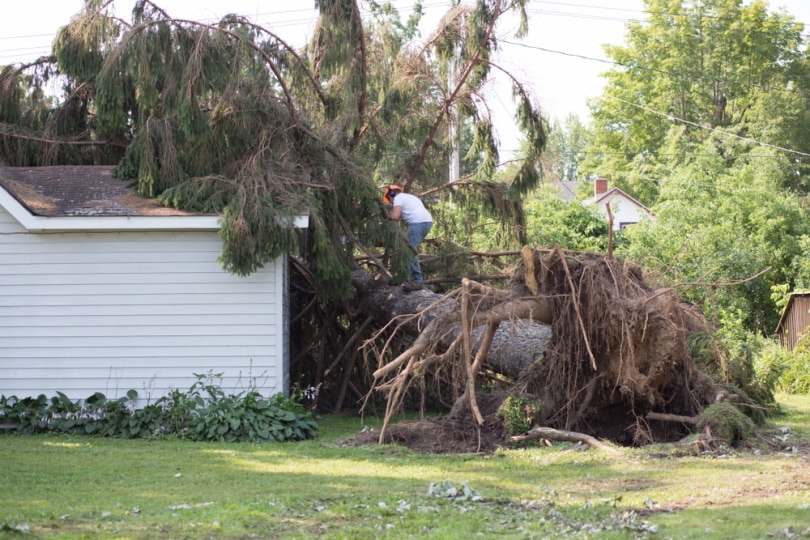Is Homeowners Insurance Tax Deductible? Facts & FAQ
-
Chris Dinesen Rogers
- Last updated:
Homeowners insurance is a necessity of life when it comes to owning a house. According to BankRate.com, the average annual cost is $1,383¹ annually for a $250,000 policy. Surprisingly, that is less than the price for full coverage auto insurance at $1,771¹. But like your ride, the premium you pay on homeowners insurance is not tax deductible. The reason is that the IRS considers both things personal property.
Situations When You Can Claim a Tax Deduction
That answer doesn’t apply in all cases. There are a few circumstances where you might be able to get a tax break. However, the rules are well-defined. We strongly urge you to contact your tax preparer to see if they apply in your case. We’re sure the last thing you want is to get flagged for an audit.

Federally Declared Disasters
The 1988 Robert T. Stafford Disaster Relief and Emergency Assistance Act¹ outlines what measures the President can take in these circumstances. The law defines two types: emergency declarations and major disaster declarations. The former allows the President to provide up to $5 million if the safety of the public is endangered by some event. It includes Individual Assistance (IA) that can help you.
The latter covers natural disasters¹, such as snow storms or earthquakes. You may even be able to claim your deductible. That can add up to some significant cash, especially if you live in a disaster-prone area like Tornado Alley¹. Some insurers may require a wind deductible in some cases. Bear in mind it also means itemized deductions.

Rental Property
The key to answering this question is the term “personal property,” meaning where you live. If you have rental property, you can deduct what you’re paying to cover that dwelling. The caveat is that you have to pay taxes on the income you’re making from it. However, there are always expenses when you own property, so you should be able to cover your costs without a problem.
Home Office
An interesting and unexpected thing happened during the pandemic. Many of us were able to work from home. According to McKinsey’s American Opportunity Survey¹, 58% enjoyed this opportunity at least 1 day a week. It’s not surprising that 87% would jump at the chance to do it again. You might think that deducting at least part of your homeowners insurance is another perk of the hybrid workplace.

You can indeed deduct the percentage of your home expenses that make up your workspace. However, the area must be a dedicated office. And it doesn’t apply if you’re working from home a few days a week. You must be self-employed to qualify for this deduction. We also recommend keeping detailed records if you make this claim.
Final Thoughts
Homeowners insurance is a necessary expense if just for the peace of mind of coverage following a natural disaster. Property damage from tornadoes alone amounted to $2.53 billion in 2020¹. However, the IRS defines its position definitively when it comes to this coverage. It is tax deductible in only a few special cases. It’s simply part of the cost of owning a home.
- https://www.bankrate.com/insurance/homeowners-insurance/homeowners-insurance-cost/#how-much-is-homeowners-insurance
- https://www.bankrate.com/insurance/car/average-cost-of-car-insurance/
- https://www.fema.gov/sites/default/files/documents/fema_stafford_act_2021_vol1.pdf
- https://www.fema.gov/disaster/how-declared
- https://www.accuweather.com/en/weather-news/what-is-tornado-alley-2/432271
- https://www.mckinsey.com/industries/real-estate/our-insights/americans-are-embracing-flexible-work-and-they-want-more-of-it
- https://www.statista.com/statistics/237409/economic-damage-caused-by-tornadoes-in-us/
Featured Image Credit: Rawpixel.com, Shutterstock
Contents

